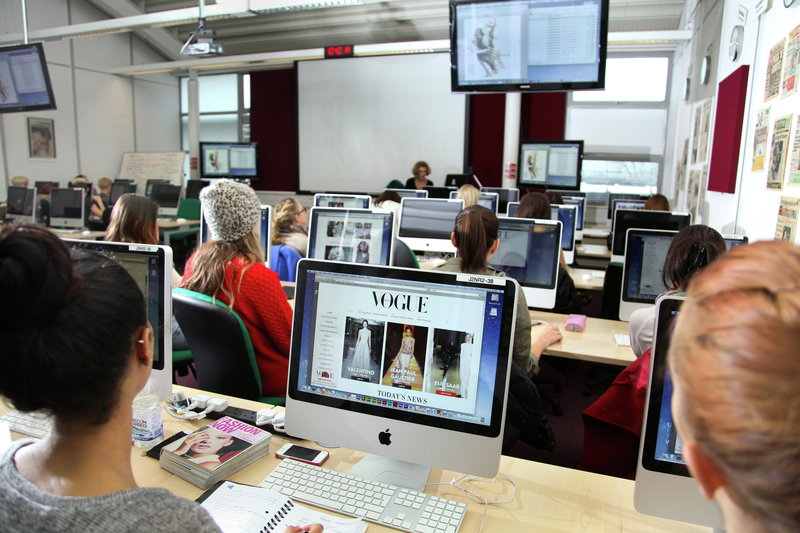

Digital literacy in students new to HE
Tony Burke from the University of Westminster’s College of Design, Creative and Digital Industries (DCDI) talks through issues around digital literacy of students entering higher education, why it is important and how digital literacy skills can be embedded into the curriculum.
Teaching digital literacy
Jim McCellan, course leader for Journalism BA Honours at the University of Westminster, talks about teaching digital literacy based upon his experiences of teaching journalists over the last eight years, and how what he has needed to teach them has changed dramatically over that period.
Learning Theories in BSL: Bloom’s taxonomy
This video was created in partnership between the educational development team at Westminster University and City Literary Institute as an outcome of a successful bid to create blended teaching and learning resources for Initial Teacher Education in 2013.
A poster produced for the 2016 Westminster Learning and Teaching Symposium setting out the benefits of recording lectures.
Best practice guidance on inclusive teaching & learning published by the Department for Education in January 2017, and aimed at universities, colleges & independent higher education providers. The guide looks at how institutions can best support the diverse student body throughout their studies.
The HEA provides four video interviews with experts on inclusion in the classroom. Rowena Arshad, Vicky Gunn, Ann-Marie Houghton and Bob Matthew respond to questions on how to build and sustain inclusivity in the classroom.
Research-informed resources, guidance and videos from the University of Plymouth.
This electronic journal shares innovations, examples of good practices and celebrates work by the champions of disability in higher education and employment, whether they are disability support officers, academics, professional staff or employers.
The HEA’s guide to the pedagogy of employability, part of the Higher Education Academy Learning and Employability Guide series 1.
This case study was written for the HEA as part of the Employability in Theory and Practice series by experts in the field of employability in higher education and provides an insight into current developments in practice.
This HEA toolkit complements the strategic direction set out in the HEA’s Framework for embedding employability in higher education and offers tools for reflection and planning to help you embed the framework into policy and practice.
JISC provide a summary of the steps you can take to improve your students’ digital literacy.
A website for academics and learning developers who aim to empower students in their learning through helping them make sense of academic practices within higher education and supporting them to acquire the generic underpinning skills for the environments in which they are working.
Bring on the learning revolution!
The learning revolution was the focus of a seminal 2010 TED Talk by Sir Ken Robinson. Watched over five million times, creativity expert Sir Ken Robinson challenges the way we’re educating. He champions a radical rethink of our school systems, to cultivate creativity and acknowledge multiple types of intelligence. Although the focus here is on compulsory education, the lessons are transferrable across education sectors.
Lecturing for learning: cognitive load
Cognitive load is the amount a human brain can process at any one time effectively.
In this video, Tom Angelo of the University of North Carolina at Chapel Hill explores the factors that affect cognitive load in students and how to prepare your lectures with this in mind.
Threshold concepts
Threshold concepts are the concepts that, once mastered, have a transformative effect on students.
In this video Joan Middendorf from the Indiana University Centre for Innovative Teaching and Learning explains what threshold concepts are, and describes a practical model through which the troublesome areas of knowledge in disciplines can be decoded, leading to gains in student learning.
UCL’s Mick Flanagan has also collected and organised a range of resources on threshold concepts.
This JISC Open Educational Resources infokit includes information about the three year UK Open Educational Resources Programme (UKOER) (2009 – 2012) and offers links to a wide range of resources which describe the outcomes (lessons learned) and outputs (reports, guidance materials and toolkits) that emerged.
This repository holds the University of Leicester’s contribution to the wealth of Open Educational Resources (OERs) available via the internet.
A comprehensive database of international research on education, teaching and learning.
Professor Mick Healey of the University of Gloucestershire has put together bibliographies on a number of different aspects of learning and teaching. Starting in 2005, he has been updating them regularly since, and each represents a comprehensive list of literature in the selected area.
A resource for teachers in Higher Education, exploring connections between thinking and writing.
The SCONUL Seven Pillars of Information Literacy
Core Model For Higher Education
A model which been adopted by librarians and teachers around the world as a means of helping them to deliver information skills to their learners.
Resources on lectures and large group teaching from Manchester Metropolitan University’s Centre of Excellence in Learning and Teaching.
This HEA toolkit complements the strategic direction set out in the HEA’s Framework for flexible learning in higher education and offers materials for reflection and planning to help you embed the framework into policy and practice.
Lynda.com offers a library of over 5000 video-based courses related to technology, business and creative skills with new courses added each week. These can be easily integrated into Blackboard, or online reading lists.
These videos feature Dr Chris Kennett, Principal Lecturer in the Westminster School of Media Art and Design, and Dr Kellie Vincent, Principal Lecturer in the Department of Leadership and Professional Development discussing how they use Lynda.com.
Take the Teaching with Lynda.com course.
